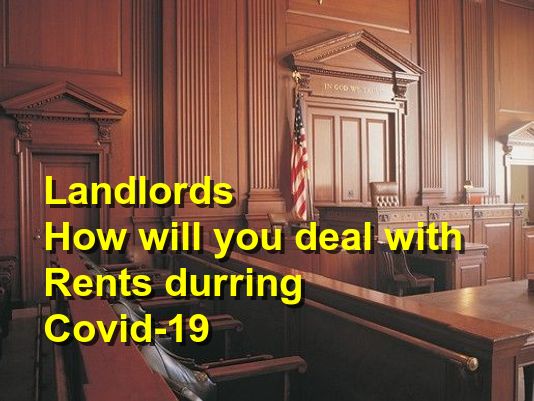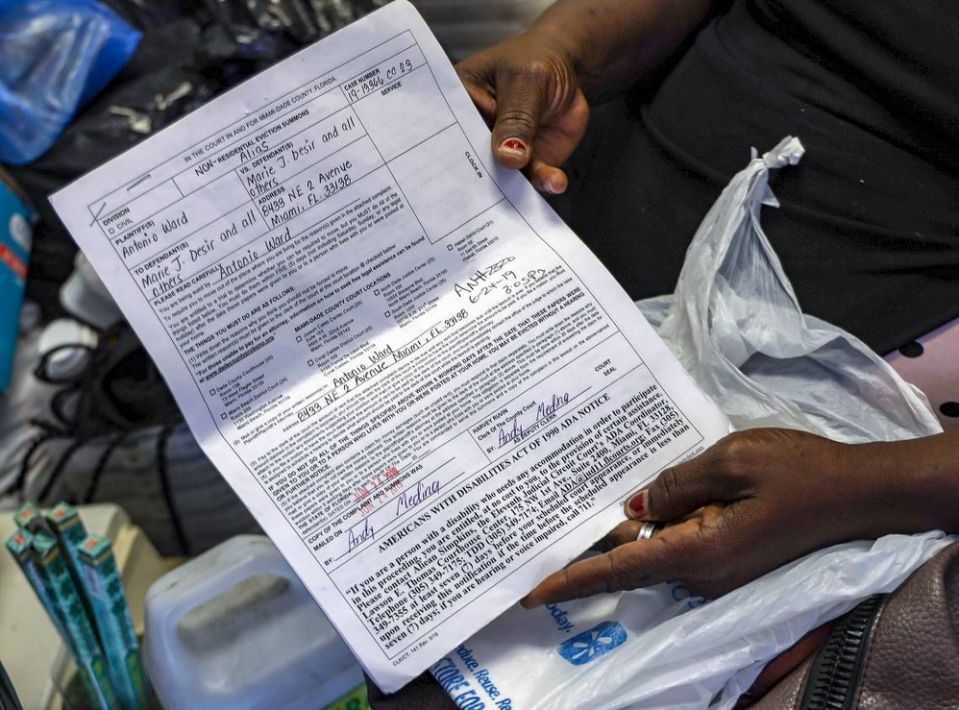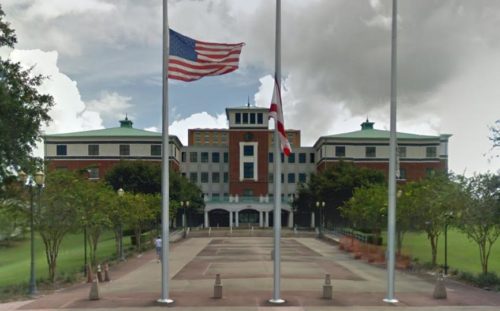State Eviction Protection: the latest information on coronavirus-related tenant protections by state (and county and major cities)
State Eviction Protection
The chart below attempts to capture the latest information on coronavirus-related tenant protections by state (and county and major cities, if applicable). Please note that this information is changing hourly, and the chart might not reflect all current protections. For the best information about the status of evictions where you live, check your state’s judicial system or governor’s website. You can also contact a legal aid organization in your area.
In the chart, click on the state’s name to be directed to its official COVID-19 website.
| State | County or City | Hold On Evictions | Hold on Utility Shutoffs | Other Tenant Protections/Notes |
|---|---|---|---|---|
| Alabama | No | No | -Visit ALtogether to find resources for assistance in Alabama.
-Alabama’s Coronavirus Relief Fund. -Public Service Commission states that it is confident no customers will experience interruption during crisis, and that after crisis period utilities will help with past-due accounts. However, the decision is left to individual utility providers. |
|
| Alaska | No | No | -See the Regulatory Commission of Alaska’s COVID-19 utility information page. -Information about housing relief and help for Alaskans.-Information for renters about 2021 rent relief programs. |
|
| Arizona | No | No | -Arizona Corporation Commission’s ban on utility disconnects has ended, but many providers are extending the hold on disconnects and are offering assistance to customers. Check with your provider.
–Resources for individuals in Arizona. -Arizona utility assistance programs. |
|
| Arkansas | No | Yes | -Arkansas Public Service Commission ordered a shutoff moratorium during state of emergency.
–Arkansas Public Service Commission COVID-19 Resources –Arkansas Fresh Start rental assistance program. |
|
| California | (local ban information) | Yes: through 6/30/2021 | Yes: until 4/16/2021 | –Governor has announced that the eviction moratorium will be extended through June 30, 2021.
-On 3/4/20 Governor Gavin Newsom declared a California-wide state of emergency (N-44-20) that (among other price controls) automatically caps rent increases. Via two separate orders, Newsom also allowed cities and counties to enact their own tenant protections (3/16/20 Executive Order N-28-20) and to extend those protections through 9/30/20 if they choose to do so. (6/30/20 Executive Order N-71-20). On August 31, 2020 Gov. Newsom signed AB 3088, which bans evictions of tenants who can’t pay rent due to COVID hardships until February 1, 2021. If the COVID hardship occurs between September 1, 2020 and January 31, 2021, tenants must pay at least 25% of rent due to avoid eviction. California has an information sheet outlining the eviction ban and tenant protections, and you can also read the text of the law for more information. -Also see California Eviction Moratorium (Bans) and Tenant Protections for the status of bans in various California cities and counties. -Utility shutoff moratorium for nonpayment until at least April 16, 2021 for most utilities. See the CPUC’s website on consumer protections during the COVID-19 outbreak for details. |
| Colorado | No | No | -Under governor’s order, landlords cannot charge late rent fees through January 31, 2021. The order also makes clear that the federal eviction ban applies in Colorado.
-See Colorado statewide utility tracker for information about whether your utility provider has put a moratorium on shutoffs during the crisis. You can also get current information about utility assistance programs on the PUC’s website. -Check your court’s website to see status. -Colorado’s Emergency Housing Assistance Program (EHAP). |
|
| Connecticut | Yes: until 2/9/2021 | No (but see notes) | -By order of governor, no evictions until February 9, 2021. (Also see Order No. 9T for details about eviction moratorium.)
–Moratorium on utility shutoff for customers with financial hardship is extended through October 31, 2020. Beginning November 1 through May 1, the statutory Winter Protection Plan protects against service termination for financial hardship. -Connecticut Temporary Rental Housing Assistance Program (TRHAP) |
|
| Delaware | Yes: until 2/9/2021 | No | –Delaware Housing Assistance Program
-By order of governor, landlords can file eviction lawsuits, but courts must stay any proceedings. Law enforcement cannot physically remove tenants. Landlords cannot charge late fees. Utilities must work with customers who are struggling due to pandemic. Lasts until end of public health emergency (currently set to expire 2/9/2021). |
|
| District of Columbia | Yes: until after emergency | Yes | –No evictions during state of emergency. Lawmakers have suspended the filing of eviction complaints until 60 days after the end of the state of emergency. Mayor’s order extends the state of emergency (and with it the eviction ban) through March 31, 2021. Also, landlords cannot send tenants notices to vacate during the ban.
-Utility shutoff moratorium extended until 3/31/2021. -D.C.’s COVID-19 Housing Assistance Program (CHAP) |
|
| Florida | No | No | -Eviction ban expired October 1, 2020.
-Most major utilities providers have said they will not shut off services. Check with your local provider. |
|
| Georgia | No | No | –State of Georgia has a COVID-19 hotline: (844) 442-2681.
-Courts have discretion as to whether eviction hearings can proceed; check individual Georgia courts’ status here. -Check the State of Georgia Public Service Commission’s website for a list of GA services that have suspended disconnections due to COVID. |
|
| Hawaii | Yes: until 2/14/2021 | Yes: until 12/31/2020 | -By order of governor, evictions for nonpayment of rent suspended until February 14, 2021.
-Hawaii PUC ordered suspension of utility shutoffs through December 31, 2020. |
|
| Idaho | No | No | -By order of Idaho Supreme Court, no jury trials in criminal cases before 8/3/2020, and no jury trials in civil cases until 10/5/2020. Remote hearings on all matters may resume on May 1, 2020.
-For financial and other assistance, the Idaho Public Utilities Commission has a county-specific resource guide. |
|
| Illinois | Yes: until 2/6/2021 | Yes: for most until 3/31/2021, but see notes | -By governor’s order, no evictions (unless the tenant poses a direct threat to people or property) through 2/6/2021. Income and other restrictions apply, and tenants must fill out a declaration affirming their eligibility for protection under the ban. For more information, see the Illinois Housing Development Authority’s Executive Order 2020-72 FAQs.
–Illinois Commerce Commission (ICC) announced that the state’s major utility providers have agreed to extend the ban on utility shutoffs through March 31, 2021. There is no ban on charging late fees, though. |
|
| Indiana | No | No | –Indiana COVID-19 Rental Assistance Program. | |
| Iowa | No | No | –Iowa Info re: CDC Eviction Ban (9/10/2020) | |
| Kansas | Yes: until 1/26/2021 | No | -By order of governor, no evictions allowed if the tenant has defaulted or violated the lease due to a financial hardship caused by the pandemic. The ban was extended through January 26, 2021. | |
| Kentucky | No | No | -By order of the governor, the ban on residential evictions is over as of August 25, 2020. On September 4, 2020 the governor rescinded paragraphs 1-4 of that order and replaced them with a new order in line with the CDC’s eviction ban.
–Kentucky Public Service Commission ended mandatory ban on shutoffs as of October 20, 2020. Late payment fees are not allowed through December 31, 2020. However, there are other protections in place, and many utilities have voluntarily agreed to not shutoff for nonpayment. Please contact your utility provider for options. |
|
| Louisiana | No | No | -Check your local court’s website to see status of hearings and trials.
-For information on utilities, visit the Louisiana Public Service Commission’s website. -Louisiana Law Help is regularly updating its website with COVID-19 information for Louisiana residents. |
|
| Maine | No | No | -By order of governor, evictions will occur under expanded time frames (meaning landlords must give tenants a longer notice period to move out/pay rent before they can be evicted). The Maine Supreme Judicial Court allows eviction filings and starting August 3, 2020 has lifted the restriction on scheduling and hearing eviction matters.
–Maine Public Utilities Commission ordered that the emergency ban on utility shutoffs will end as of November 1, 2020. However, as of that date, the winter restrictions on disconnections will be in place. Contact your provider for assistance. -MaineHousing has created a $5 million COVID-19 Rent Relief Program. |
|
| Maryland | Yes: until end of state of emergency | No | -By governor’s order, no evictions statewide during emergency.
-The Maryland Court of Appeals put a hold on all eviction proceedings that ended July 25, 2020. The court has issued a communication about procedures for and timing of eviction cases. See court’s August 11, 2020 Administrative Order for more information. -Utility shutoff moratorium ended 11/15/2020. Maryland PSC is providing energy assistance programs. |
|
| Massachusetts | No | No | –Legislative ban on evictions during COVID emergency; expired on October 17, 2020.
–Massachusetts state resources for renters. -For utility information, see the DPU list of utility assistance resources. |
|
| Michigan | No | No | -Michigan is offering an Eviction Diversion Program for renters who need assistance.
-Many Michigan utility providers are agreeing to suspend shutoffs. Check the MPSC website for your carrier’s current policies. |
|
| Minnesota | Yes: until 2/12/2021 | Maybe (see notes) | -Governor signed executive order to suspend certain evictions (see order for details) during state of emergency. The order was extended through February 12, 2021.
–Minnesota Public Utilities Commission required state regulated utilities to extend consumer protections throughout the COVID emergency. |
|
| Mississippi | No | No | –Governor announced that evictions can resume on June 1, 2020.
–Supreme Court of Mississippi issued order stating that certain counties may resume sending jury summonses on or after May 18, 2020; gives judges discretion on many cases. -Mississippi has established a COVID-19 information website. -Check the Mississippi Judiciary’s website for information about evictions, trials, and court access. |
|
| Missouri | No | No | –Missouri’s governor’s COVID-19 announcements.
–Supreme Court of Missouri has directed courts to exercise discretion regarding cases (effective May 16, 2020) and appearances subject to certain Operational Directives. Whether or not your case will be held is left to discretion of judge. -Check Missouri Public Service Commission’s website for information about utility shutoffs. |
|
| Montana | Limited (see notes) until end of emergency | No | -By order of governor, no terminations, evictions, or utility shutoffs for those who meet the criteria listed in the order. All others may be evicted/have utilities disconnected. In effect until end of emergency (which lasts as long as the Presidential declaration of emergency).
-Renters can seek relief from the Montana Coronavirus Relief program. -Visit the Montana Public Service Commission’s website to locate your utility service provider’s website and find out about status. |
|
| Nebraska | No | No | -Visit Nebraska Public Service Commission’s website to see list of utility providers who have agreed to not shut off service.
-Nebraska Public Service Commission is allowing utility carriers to seek reimbursement for providing service to low-income families. |
|
| Nevada | Yes: through 3/31/2021 | No | –Governor ordered a moratorium on evictions through March 31, 2021.
-NV Energy suspended disconnections for nonpayment until September; check the State of Nevada Public Utilities Commission’s website. |
|
| New Hampshire | No | No | -By order of the governor, evictions can resume on July 1, 2020.
-State has created the New Hampshire Housing Relief Program. -By governor’s order, prohibition on disconnection of electric, gas, water, and telephone service will end on July 15, 2020. |
|
| New Jersey | Yes: until end of emergency +2 months | Yes: through 3/15/2021 (but see notes) | -Governor’s order prohibits removal of tenants from residential properties, and postpones enforcement of all judgments for possessions, warrants of removal, and writs of possession.
-By order of governor no utility shutoffs through March 15, 2021. No cable or telecommunications shutoffs for nonpayment through November 15, 2020, and no cable or telecommunications shutoffs at all if there is a school-age child using service for educational purposes. See the order for further details and information about late fees. |
|
| New Mexico | Yes | No | -See New Mexico’s website on the utilities’ response to COVID-19.
–NM courts have placed a temporary moratorium on eviction. You must provide the court with evidence of current inability to pay rent at your hearing on the eviction petition. Eviction hearings will be held by video or phone, unless parties file a motion for in-person hearing. The NM Supreme Court has a FAQ page for more information. Moratorium in place until end of emergency (extended by governor until 2/5/2021 or until rescinded by governor). -Many utilities have suspended shutoffs. Check with your provider for information. |
|
| New York | Yes: until 5/1/2021 | Yes | -The state legislature’s COVID-19 Emergency Eviction and Foreclosure Prevention Act of 2020 prohibits evictions until at least May 1, 2021 and puts various tenant protections in place.
-The New York Unified Court System issued memo on November 17, 2020 about procedures. -No utility shutoffs due to nonpayment during the state of emergency +180 days. |
|
| North Carolina | Yes: until 1/31/2021 | No | -The governor’s executive order 171 outlines the details of the eviction ban. The governor’s executive order 184 extends the ban through January 31, 2021 and provides further details.
-Also see the state’s FAQ regarding the eviction ban. -Utilities may begin collecting and enforcing unpaid accounts on September 1, 2020. Check with your provider for more info. |
|
| North Dakota | No | No | -A North Dakota COVID-19 Community and Nonprofit Response Fund was established. | |
| Ohio | No | No | –Ohio Supreme Court has advised all lower courts to continue eviction-related matters. Not a requirement, so check with local court. | |
| Oklahoma | No | No | -Evictions may proceed, but, by order of the Supreme Court of Oklahoma, anyone filing an eviction must certify that the property is not covered under the federal CARES Act.
–Oklahoma’s COVID-19 resources and assistance website. -Oklahoma COVID-19 call center: 877-215-8336 |
|
| Oregon | Yes: until 6/30/2021 | No (see notes) | -Oregon legislators have passed a bill extending eviction ban until June 30, 2021. Oregon Law Center’s handout provides details about the ban.
–Oregon PUC list of utility providers who are suspending disconnects. –Multnomah County eviction ban in place until July 2, 2021. |
|
| Pennsylvania | No | No | -Pennsylvania’s eviction ban expired on August 31, 2020.
–Pennsylvania CARES Rent Relief Program. –Pennsylvania Public Utility Commission ordered ban on shutoffs until November 9, 2020. After that, utilities must take certain steps before shutting off. See October 8, 2020 order for details. -Each court handles CDC Eviction Ban procedures individually. Notices are posted here. |
|
| Rhode Island | No | No (but see notes) | -By order of supreme court, evictions can resume after June 1, 2020.
–Rhode Island Public Utilities Commission ordered halt on termination of service for nonpayment through November 1, 2020 for residential accounts. After that, the winter moratorium will be in place until April 15, 2021. |
|
| South Carolina | No | No | -Any party pursuing an eviction must submit to court a signed, original Certification of Compliance with the Coronavirus Aid, Relief, and Economic Security Act. | |
| South Dakota | No | No | -Check South Dakota Unified Judicial System for status of cases.
-Check South Dakota PUC website for resources related to utilities. |
|
| Tennessee | No | No | -Tennessee Supreme Court ordered that evictions may resume June 1, 2020.
-By order of Tennessee Public Utility Commission, the PUC had utility shutoff ban in place through August 10, 2020. |
|
| Texas | No | No | -Unless there is a local order protecting tenants from evictions, courts can issue eviction citations, and eviction hearings can start as of May 19, 2020.
-For Texas-specific information and resources, see TexasLawHelp.org‘s website on Property Law Issues During COVID-19 and its publication, Evictions During the COVID-19 Pandemic. -TXU Energy is offering customer support resources. |
|
| Utah | No | No | –The Utah Apartment Association has helpful information and resources for renters and landlords on its website. | |
| Vermont | Yes: until end of emergency plus 30 days | Yes: until 3/31/21 | –Evictions are banned until the end of the state’s declared emergency (currently in place until February 15, 2021) plus 30 days.
-The ban on utility shutoffs (electricity, telephone landlines, and natural gas) is in place until March 31, 2021. |
|
| Virginia | No | Yes: until at least 60 days after end of state of emergency | –Virginia Rent and Mortgage Relief Program. | |
| Washington | Yes: until 3/31/2021 | Yes: until 4/30/2021 | -By order of the governor, the state’s residential eviction moratorium is extended until March 31, 2021.
-Utility shutoff moratorium extended until April 30, 2021. |
|
| West Virginia | No | No | -By order of supreme court of appeals, judicial state of emergency expires May 15, 2020. See courts for information on status. | |
| Wisconsin | No | Yes: until 4/15/2021 | -State launched the Wisconsin Rental Assistance Program for people who have lost income.
-By order of PSC of Wisconsin, no utility shutoffs for residential customers until April 15, 2021 (PSC REF#: 399114). -PSC of Wisconsin launched a customer service phone line for internet and phone service. |
|
| Wyoming | No | No | -Wyoming Supreme Court ordered suspension of all in-person proceedings (with certain exceptions). Check court for status.
-Check Wyoming’s COVID-19 website for more information. |








 We partnered with USLegal Forms to offer Clients Forms, Leases, and Eviction Packages found on our website pages.
We partnered with USLegal Forms to offer Clients Forms, Leases, and Eviction Packages found on our website pages. Articles written by many of the Top Industry Leaders, Learn about information in your State or read the articles in
Articles written by many of the Top Industry Leaders, Learn about information in your State or read the articles in 
 We started this to help the many Landlords, Property Owners & Investors with finding information about evictions. We added directories where clients can find: Law Firms, Process Servers, Public Notaries in the states they live in. We offer this information not excluding Tenants, there are times when tenants rights have been violated and NationalEvictions has the information to help Tenants defend and answer an eviction with information and links in the States they live in.
We started this to help the many Landlords, Property Owners & Investors with finding information about evictions. We added directories where clients can find: Law Firms, Process Servers, Public Notaries in the states they live in. We offer this information not excluding Tenants, there are times when tenants rights have been violated and NationalEvictions has the information to help Tenants defend and answer an eviction with information and links in the States they live in.









